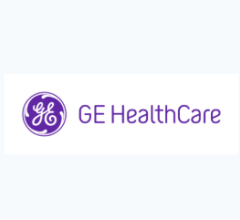
March 26, 2018 — Medical school students receive little formal instruction in radiation oncology, a Loyola study has found.
Researchers who surveyed radiation oncology departments at academic medical centers found that only 41 percent of departments reported that at least one faculty member taught a topic related to radiation oncology. In only 25 percent of departments, a faculty member taught topics focused specifically on radiation oncology.
Loyola Medicine radiation oncologist William Small, Jr., M.D., is a co-author of the study, published in the Journal of the American College of Radiology. Small is chair of the department of radiation oncology of Loyola University Chicago Stritch School of Medicine. At Stritch, the department of radiation oncology is more involved in medical student education than departments at many academic medical centers. Small lectures second-year students on radiation oncology. Faculty members mentor students through the Student Training in Approaches to Research (STAR) program, an eight-week research education program for first-year students. Faculty also mentor fourth-year students during a four-week elective rotation in radiation oncology. The school also sponsors a radiation oncology interest group, in which first-year students tour the department, learn about workflow and go through a sample case, said radiation oncologist Tarita Thomas, M.D., Ph.D., medical school clerkship director.
More than 1.7 million Americans will be diagnosed with cancer in 2018, according to the American Cancer Society. Between 50 and 60 percent of cancer patients will receive radiation therapy, Small said. "But our specialty is not doing enough to educate medical students about this critical component of cancer care."
A field that is little known to medical students is likely to remain a mystery to most practicing physicians, Small and colleagues wrote. This can result in "inappropriate referral patterns, improper treatments, false attribution of toxicities and poor visibility of radiation oncology in national health policy decision-making."
The researchers surveyed radiation residency training programs in the United States, asking about the various ways in which radiation oncologists are involved in medical student education, including clinical education, research and career mentoring.
Of the 75 academic radiation oncology departments surveyed, 49 responded, a 65.3 percent response rate. Twenty-five percent of departments said they had no involvement in the formal curricula at their local or affiliated medical schools. In many cases, the most significant contribution was research mentorships. Departments also reported other approaches to teaching, including multidisciplinary clerkships (also known as rotations) that include radiation oncology concepts; guest lectures on radiation oncology; and extracurricular activities such as an oncology seminar series, special medical student enrichment programs and radiation oncology interest groups.
"The study is, to our knowledge, the first to characterize the approaches academic radiation oncologists use to engage medical students, highlighting creative solutions to overcome natural barriers to progress and increase students' exposure to and engagement in the field," the study authors wrote.
The main goal of the study was to prompt radiation oncologists to take action in their home institutions and to galvanize the American Society for Radiation Oncology (ASTRO) and other radiation societies to take more interest in the topic.
"Radiation oncology as a specialty suffers from a crisis in identity, and at times even reputation, among those outside of our field," the study authors wrote. "If that is to change, it is incumbent on radiation oncologists to take ownership over the dissemination of knowledge about our value in patient care and the oncology team."
The study is titled "Out of the Basement and Into the Classroom: Pathways for Expanding the Role of Radiation Oncologists in Medical Student Education." First author of the study is Malcolm D. Mattes, M.D., of West Virginia University. A third co-author is Neha Vapiwala, M.D., of the Hospital of the University of Pennsylvania.
For more information: www.jacr.org


 January 30, 2026
January 30, 2026 









